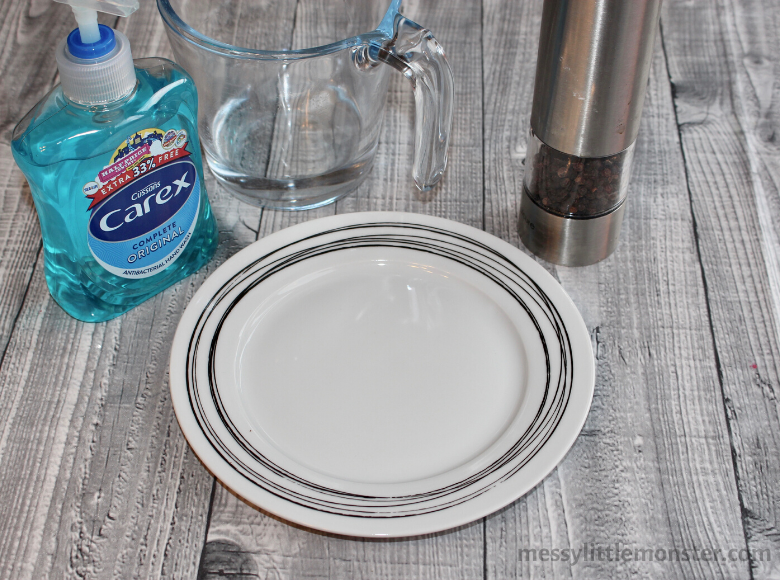The pepper germ experiment is a fascinating exploration into the world of seed germination and plant growth. Understanding how seeds germinate, particularly pepper seeds, can provide insights into agricultural practices, home gardening, and even scientific research. This article will delve into the intricacies of the pepper germ experiment, discussing methods, results, and implications for both amateur gardeners and professional botanists.
This experiment not only highlights the biological processes involved in germination but also emphasizes the importance of environmental factors such as temperature, moisture, and soil quality. By the end of this article, readers will have a thorough understanding of the pepper germ experiment, including insights into the best practices for seed germination.
With a focus on the pepper plant, this article will cover everything from the basic biology of pepper seeds to advanced germination techniques. Whether you are a seasoned gardener or a curious beginner, this exploration into the pepper germ experiment will provide valuable knowledge that can be applied in various horticultural settings.
Table of Contents
- 1. Introduction to Pepper Germ Experiment
- 2. Biological Basis of Germination
- 3. Factors Affecting Germination
- 4. Experimental Setup
- 5. Data Collection and Analysis
- 6. Results of the Experiment
- 7. Applications of the Findings
- 8. Conclusion
1. Introduction to Pepper Germ Experiment
The pepper germ experiment serves as an educational tool for understanding the germination process of pepper seeds. By observing how these seeds react to different environmental conditions, one can gain insights into the requirements necessary for optimal growth.
2. Biological Basis of Germination
Germination is the process by which a seed develops into a new plant. For pepper seeds, this process begins when the seed absorbs water, swells, and eventually breaks through its outer shell. The biological mechanisms behind this process involve several factors, including enzyme activation and the mobilization of stored nutrients.
3. Factors Affecting Germination
Several key factors influence the germination of pepper seeds. Understanding these factors is crucial for successfully conducting the pepper germ experiment.
3.1 Temperature
Temperature is one of the most critical factors affecting seed germination. Pepper seeds typically germinate best at temperatures ranging from 70°F to 90°F (21°C to 32°C). Temperatures lower than this can delay germination, while excessively high temperatures can damage the seeds.
3.2 Moisture
Moisture levels significantly impact germination rates. Seeds require a sufficient amount of water to initiate the germination process. However, excessive moisture can lead to rot and fungal infections, which can hinder successful germination.
3.3 Soil Quality
The quality of the soil used for germination can affect nutrient availability and drainage. Well-draining soil enriched with organic matter provides the best conditions for pepper seed germination.
4. Experimental Setup
To conduct the pepper germ experiment, the following materials are typically required:
- Pepper seeds
- Seed trays or pots
- Potting soil
- Watering can or spray bottle
- Thermometer
- Light source (if indoors)
The experimental setup involves planting the seeds in the prepared soil, ensuring that they are spaced adequately, and then monitoring the environmental conditions throughout the germination process.
5. Data Collection and Analysis
Data collection is an essential aspect of the pepper germ experiment. Observational data may include:
- Time taken for seeds to germinate
- Number of seeds germinated
- Growth measurements (height, leaf count)
This data can then be analyzed to assess the impact of different environmental factors on germination rates.
6. Results of the Experiment
The results of the pepper germ experiment can vary based on the conditions used. Generally, optimal temperature and moisture levels will yield the highest germination rates. Statistical analysis can help determine the significance of the findings.
7. Applications of the Findings
Understanding the germination process of pepper seeds can have several applications:
- Improving home gardening practices
- Enhancing agricultural productivity
- Contributing to academic research in botany
8. Conclusion
In conclusion, the pepper germ experiment provides valuable insights into the factors affecting seed germination. By understanding these factors, gardeners and agriculturalists can optimize their practices for better yields. We encourage readers to share their experiences and findings related to seed germination in the comments below and explore related articles on our site.
We hope this article has enlightened you about the intricacies of the pepper germ experiment. Your feedback and engagement are invaluable to us, and we look forward to sharing more informative content in the future. Happy gardening!



